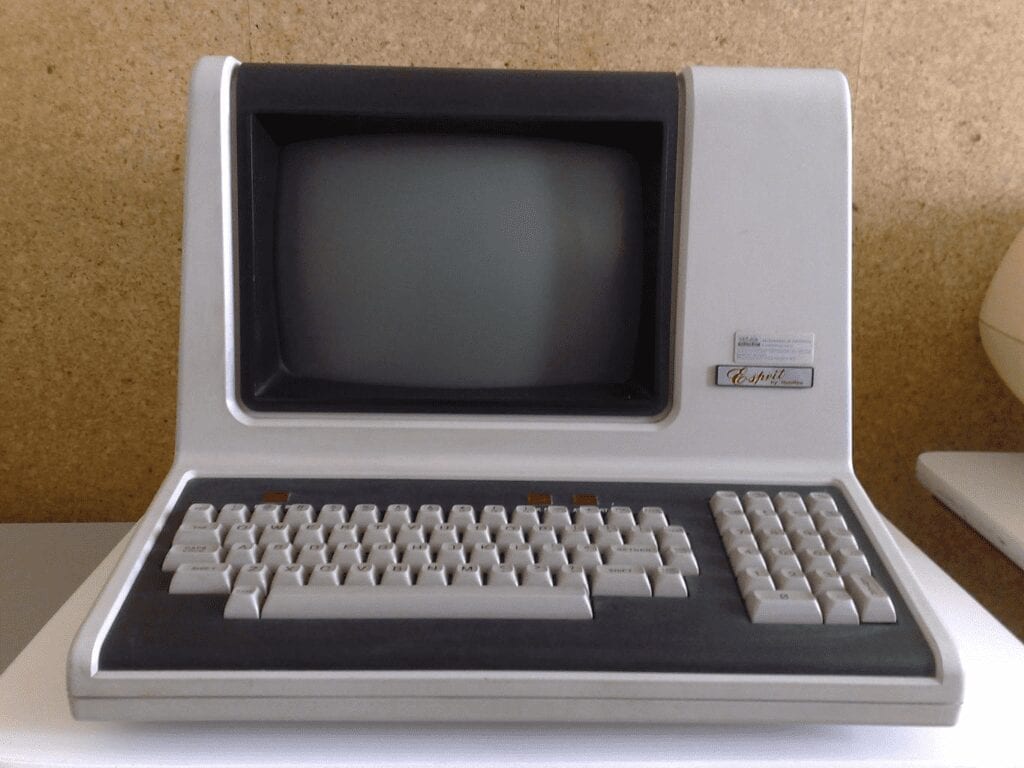C++ is a mid-level programming language that’s faster and closer to machine code. C# is a high-level programming language that’s easier to learn. Both C++ and C# are object-oriented, general purpose programming languages.
When you’re choosing a foreign language to learn, it’s usually easier to start with one that’s a common base for other languages. Learning a language like Latin prepares you for Romance languages like Italian or Spanish. Programming languages work in a similar way. C is a lot like the Latin of programming languages. But just like you might find it hard to strike up a conversation in Latin, you might find one of C’s children more useful instead of C itself.
There’s a rich history of C-based languages in the tech world. Between C, C++, Objective C, C#, and Not Quite C, it’s enough to confuse any programmer, even those with some experience. Two programming languages that appear prominently in current job listings are C++ and C#. Both have a strong history, are general purpose, are very popular with developers and employers, and will clearly stick around for a while.
So if you’re looking to pick a language to pursue, is one better? What’s the difference between C# and C++? To answer these questions, it’s worth starting with their origins in C.
C Programming Family history

C

C was developed in the 1970s to work with the UNIX operating system that was burgeoning at the time. C is a much lower-level programming language than languages based on it, like C++ and C#. This means it can be used almost as efficiently as assembly code, which forms the basic building blocks of computer instructions. However, like any low-level language writing anything complicated in C can be a bit tedious, and the language isn’t easy to understand.
C is still used today in a variety of applications. Embedded systems (such as the software that lives in any industrial hardware or home appliance) use C a lot since it doesn’t take up much space. It’s also used for scripting processes on server-side web applications or anywhere where small but fast programs need to run in the background. Virtually any computer you use has C running somewhere under the hood.
C++

C++ was created by a Danish graduate student named Bjarne Stroustrup in 1979. He wanted to expand the capabilities of the language. The name itself reflects how C++ is moving beyond C: the “++” suffix is from the C language meaning “to increment a value by one.” It was designed to be an extension of C, specifically “C with classes”. This specifically meant C with object-oriented capabilities.
C#

C# was developed by Microsoft in 2002. While technically it’s based on a language called .NET, it owes a lot of its lineage to C. It was designed as a competitor to Java and shows some similarity to that language. In fact, its creation came about because Sun (the owners of Java) did not want Microsoft to make changes to Java, so Microsoft decided to make its own alternative.
C++ filled the need for object-oriented programming within C. C# was built on the success of this and Java—itself another popular object-oriented language. So what does the term object-oriented programming mean?
What Is Object-Oriented Programming?

A fundamental way in which programming languages differ is in how they structure and handle data. The model they use for doing this shapes the way you work with that language.
Object-oriented programming languages (OOP) have data in objects (specific structures for that data) that have methods (actions you can do to that data) available to you. Fundamental to OOP is the concept of abstraction: keeping the pieces of a program hidden if you don’t need to have access to it. Also important to OOP is the idea of inheritance.
This is a way to have similar (but not identical) objects share common traits without having to rewrite these traits over and over. They inherit the things they need. This means that very complex programs can be built without having to construct every single tiny brick to do so.
Where C is a very low-level language enabling you to build very tiny details (each brick that you need), these object-oriented versions of C allow you to get to building walls right away. In addition, in an object oriented language when you make a wall of bricks you can often reuse that wall instead of rebuilding it each time you need it.
Comparing C++ vs C#

Although they share a common ancestor, C++ and C# have become very different languages. As stated earlier, C# is a higher-level language compared to C++ or C. So, what is C sharp used for? In short, C# was designed to help create applications faster than a lower-level language.
C# is mainly designed for application development for the Microsoft platform and requires the .NET framework on Windows, and therefore typically only runs on Windows. Although (as is true for most languages) it can be used to create almost anything, it’s particularly strong at making Windows desktop applications and video games. It’s also used for web and mobile applications.
C++ is also used for a wide variety of applications on a range of platforms. As it was designed to be platform-agnostic, C++ is not geared to the Microsoft framework. C++ shows up as the backbone of a number of very large scale websites, such as Google, Youtube, and Amazon. C++ has the advantage of appearing a number of years before C#.
While C++ compiles to machine code directly, C# compiles to something called CLR: Common Language Runtime which is then interpreted in a JIT (Just In Time) manner in ASP.NET. This gives C# a bit of extra overhead in time and memory. This is to be expected with any language that’s higher level. In addition, C++ supports multiple inheritance, while C# does not.
While C++ is simply object oriented, C# is considered a Component-Oriented Programming language. This means that C# has a special bias towards reusing old components with new components.
C++ has no automatic garbage collection, meaning that you have to manually allocate and de-allocate memory in your programs. C# handles memory management automatically with a garbage collector.
Having this memory management done by the software is great for new programmers, but it can also lead to bad programming habits that could introduce bugs in more complex programs. Some developers prefer the control of having to take care of tasks like memory management themselves. You can think of it like manual transmission vs automatic transmission. Some people want better control while others want the machine to do the work for them.
C# vs C++: Popularity

Based on information derived from Github, C++ and C# are ranked the fourth and fifth most popular languages in use. C# is ranked the third largest community by StackOverflow (which is interesting, as that site was built with C#). Another recent survey puts C++ at number two, pushing down the very popular Python scripting language. This increased use has been explained as due to recent updates to the language, which keep it robust.
It’s worth noting that both of these surveys list C at number two. Clearly, there’s still value in learning the computer science equivalent to Latin.
C++ vs C#: Performance and Speed

The answer, of course, depends on what you’re asking it to do. But in general terms, C++ is going to be faster than C# due to its lower-level status. However, getting this high performance requires taking advantage of its low-level language features and optimizing it at the micro-level.
While that would make the program go faster, the actual coding will take a lot longer than it would with a high-level language. High-level languages like C# are designed to reduce coding time by abstracting away a lot of under the hood processes. So if you need real-time number-crunching done faster, C++ is the way to go. If you need to assemble something quickly, go with C#.
Where to Start?

Now that we know the difference between C sharp vs C++, which should we learn first? C# is generally considered an easier language to learn over C++, due to its higher-level status and the user-friendliness of the .NET framework.
Both are worthwhile languages to learn for employability in the software development or computer science fields. If you’re looking to do more fundamental number crunching and low-level computing, C++ would be a good place to start. If you’re looking to make apps or video games right away, definitely start with C#. And while you’re at it, a background in C—while not necessary—certainly couldn’t hurt.
About us: Career Karma is a platform designed to help job seekers find, research, and connect with job training programs to advance their careers. Learn about the CK publication.

"Career Karma entered my life when I needed it most and quickly helped me match with a bootcamp. Two months after graduating, I found my dream job that aligned with my values and goals in life!"
Venus, Software Engineer at Rockbot



